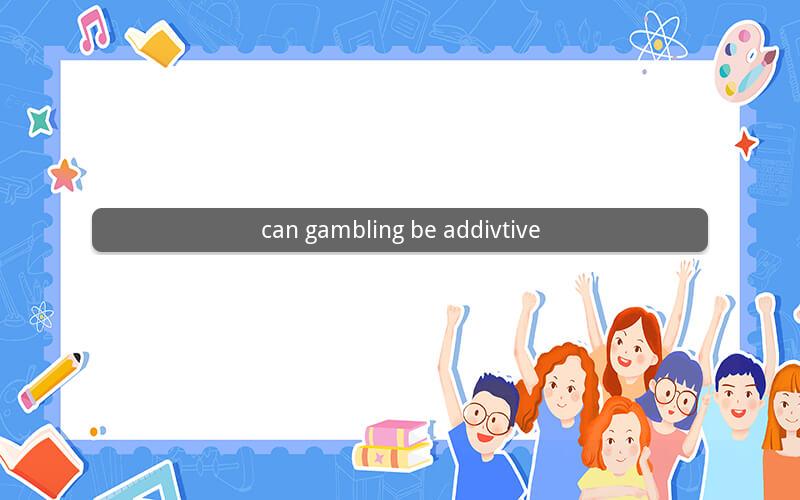
Table of Contents
1. Understanding Addiction
2. The Nature of Gambling
3. Signs of Gambling Addiction
4. The Science Behind Gambling Addiction
5. Psychological and Social Factors
6. The Impact of Gambling Addiction on Individuals
7. The Impact of Gambling Addiction on Families
8. The Impact of Gambling Addiction on Society
9. Treatment and Support for Gambling Addiction
10. Prevention and Education
1. Understanding Addiction
Addiction is a complex condition characterized by compulsive engagement in rewarding stimuli despite adverse consequences. It is a chronic disorder that affects both the brain and behavior. When discussing the potential for gambling to be addictive, it is crucial to understand the nature of addiction itself.
2. The Nature of Gambling
Gambling, by definition, involves risking something of value on an event with an uncertain outcome. It can range from casual activities like playing a lottery ticket to more intensive forms such as poker or sports betting. The allure of gambling lies in the potential for winning big, which can create a strong psychological and emotional attachment to the activity.
3. Signs of Gambling Addiction
Identifying gambling addiction can be challenging, as it often develops slowly and subtly. Some common signs include:
- Inability to control gambling behavior, despite negative consequences.
- Needing to gamble with increasing amounts of money to achieve the desired excitement.
- Feeling restless or irritable when attempting to cut down or stop gambling.
- Returning to gambling to relieve unpleasant feelings or tension.
4. The Science Behind Gambling Addiction
Research has shown that gambling addiction can be linked to changes in the brain's reward system. Dopamine, a neurotransmitter associated with pleasure and reward, is released in response to winning. Over time, the brain can become desensitized to the natural rewards of life, leading to a reliance on gambling for pleasure.
5. Psychological and Social Factors
Several psychological and social factors can contribute to the development of gambling addiction. These include:
- A history of trauma or abuse.
- Low self-esteem or a need for validation.
- Peer pressure or exposure to gambling through social circles.
- A personality trait that seeks thrills or excitement.
6. The Impact of Gambling Addiction on Individuals
Gambling addiction can have severe consequences on an individual's life. These include:
- Financial ruin.
- Relationship problems.
- Legal issues.
- Mental health disorders, such as depression or anxiety.
- Physical health problems, such as stress-related conditions.
7. The Impact of Gambling Addiction on Families
The impact of gambling addiction extends beyond the individual to affect families. Some of the consequences include:
- Financial strain due to supporting the addicted person.
- Emotional distress and stress.
- Divorce or separation.
- The neglect of children and other family members.
8. The Impact of Gambling Addiction on Society
Gambling addiction has broader societal implications, including:
- Increased rates of crime and theft.
- Higher healthcare costs due to mental and physical health issues.
- Decreased productivity in the workforce.
- Social instability and economic hardship.
9. Treatment and Support for Gambling Addiction
Treatment for gambling addiction can vary, but it often includes:
- Cognitive-behavioral therapy (CBT) to address the underlying causes of addiction.
- Support groups, such as Gamblers Anonymous.
- Medication to manage co-occurring mental health disorders.
- Financial counseling to address financial issues.
10. Prevention and Education
Preventing gambling addiction begins with education and awareness. Some strategies include:
- Age restrictions on gambling activities.
- Public awareness campaigns about the risks of gambling.
- Responsible gambling practices, such as setting limits and self-exclusion programs.
Questions and Answers
1. Q: Can anyone become addicted to gambling?
A: Yes, anyone can become addicted to gambling, regardless of age, gender, or background.
2. Q: Is there a difference between problem gambling and gambling addiction?
A: Yes, problem gambling is a broader term that encompasses mild, moderate, and severe forms of gambling-related issues. Gambling addiction refers to the most severe form of problem gambling.
3. Q: Can gambling addiction be cured?
A: While there is no guaranteed cure for gambling addiction, treatment can help individuals manage their addiction and reduce its impact on their lives.
4. Q: Are there any genetic factors that contribute to gambling addiction?
A: Yes, research suggests that genetics may play a role in the development of gambling addiction.
5. Q: Can gambling addiction be triggered by stress or anxiety?
A: Yes, stress or anxiety can be triggers for gambling addiction, as individuals may turn to gambling as a way to cope with these emotions.
6. Q: Is online gambling more addictive than traditional gambling?
A: Online gambling can be more addictive due to its accessibility and the potential for anonymity.
7. Q: Can a person recover from gambling addiction without professional help?
A: While some individuals may recover without professional help, many find that support groups and therapy can significantly aid in their recovery process.
8. Q: How can I help a loved one who is struggling with gambling addiction?
A: Encourage your loved one to seek help, offer support, and be patient. Consider attending support groups with them.
9. Q: Are there any medications that can help treat gambling addiction?
A: There are no medications specifically designed to treat gambling addiction, but some medications may help manage co-occurring mental health disorders.
10. Q: Can gambling addiction be prevented?
A: Yes, prevention involves education, responsible gambling practices, and the implementation of policies that limit access to gambling opportunities.